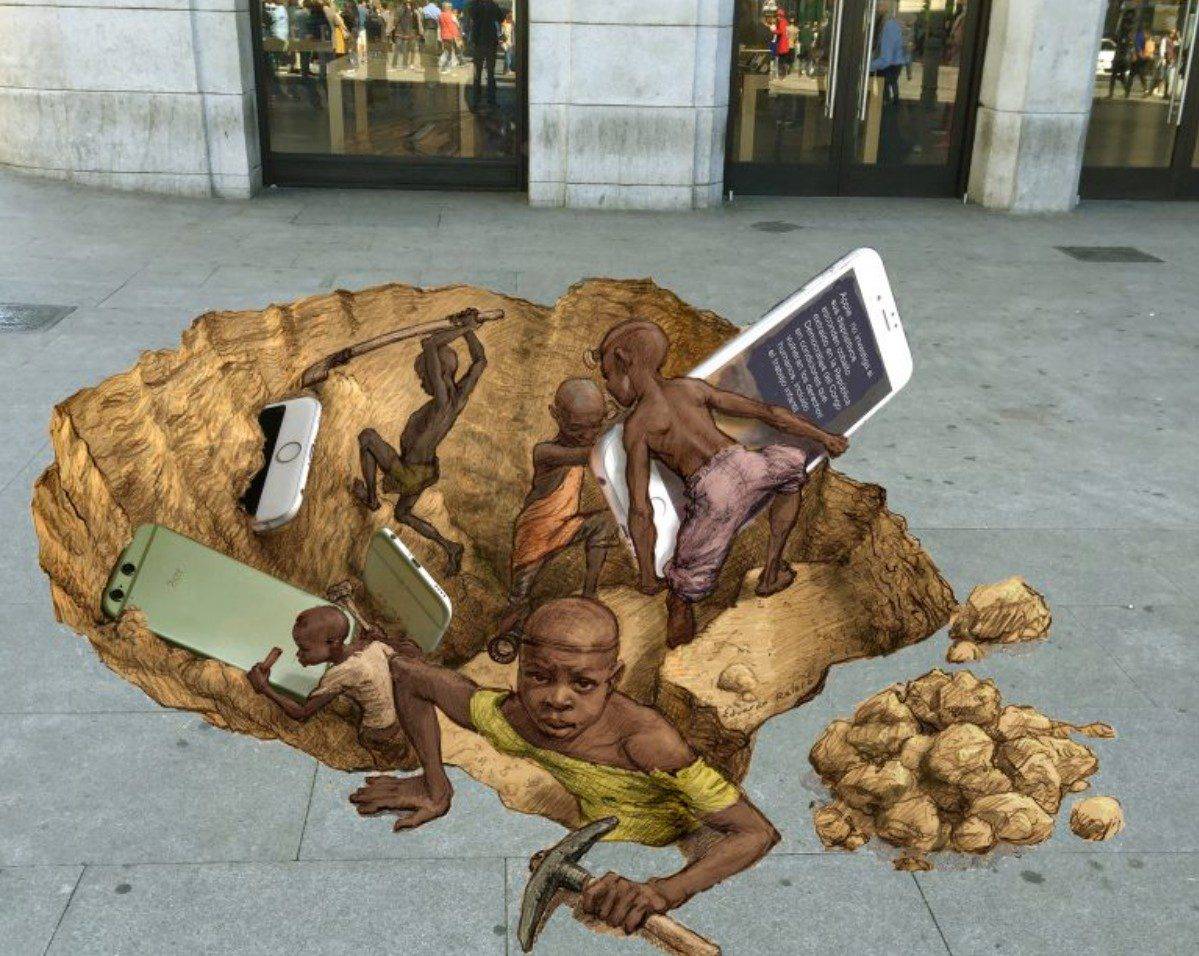#NoCongoNoPhone: DR Congo Has Powerless People Powering Global Technology

“Is my phone powered by child labour?” That’s the ominous title that was given to an expose published by Amnesty International back in 2016.
That expose sounded alarm bells having uncovered that there’s a big chance that the bulk of the feature phones and smartphones that have become popular the world over is partly the result of child labour that is prevalent in the Democratic Republic of Congo (DR Congo).
And four years later, those alarm bells are still ringing, only that they may have become louder.
For much of the past two weeks, the #EndSARS protest in Nigeria — now a campaign against police brutality and ineffective governance in Africa’s most populous country — has been the biggest news out of Africa. This may have inadvertently muffled the voices that are speaking up on an equally important issue in DR Congo.
In the Central African country, the #NoCongoNoPhone campaign is gaining momentum as both locals and foreign nationals lend their voices against what some have described as a “silent holocaust” that is engulfing the country.
According to some accounts, “millions of people are being killed in Congo so the western world can benefit from its natural resources. There are even unconfirmed claims that countries like “the U.S., the U.K., and France are providing financial and military aid to neighbouring Rwanda and Uganda to invade Congolese regions filled with coltan reserves. And as they invade, millions have been displaced and killed.”
DR Congo is indeed in the middle of a security crisis. It was reported barely two days ago that armed fighters freed over 1,300 prisoners in a DR Congo jail. There has been a rush of violence in the country over the last few weeks, and this has left a lot of death and displacement in its wake.
The country is in the middle of a humanitarian crisis, which as always, is connected to the perpetual tug-of-war that is associated with diverging interests in DR Congo’s mineral resources.
The #NoCongoNoPhone hashtag that is trending on social media at present is a call to cure the ills tied to interests in DR Congo’s mineral reserves which, for years, has resulted in the exploitation of children, the destruction of lives and property, and damage to the country overall.
DR Congo has the world’s largest deposit of the metallic ore known as Coltan. Coltan is an important mineral employed in the manufacture of electronic devices. It also sees use in aerospace technology.
In addition, more than half the world’s cobalt comes from DR Congo, and one-fifth of it is extracted by artisanal (or informal) miners. These informal miners “enslave” more than 40,000 children who work in southern DR Congo where cobalt is mined.
DR Congo man 🙁 pic.twitter.com/k6W0jkONly
— Mwirigi ?? (@Mwirigi) October 21, 2020
Cobalt compound is found in every lithium-ion rechargeable battery on the planet – from smartphones to tablets to laptops to electric vehicles. It is also used to manufacture jet engines, gas turbines, and magnetic steel.
Yet DR Congo remains one of the poorest countries in the world. While its poverty rate has fallen slightly over the past two decades, particularly in rural areas, 72 percent of the population, especially in the North West and Kasaï regions, was living in extreme poverty on less than USD 1.90 a day as of 2018.
Children from 6 years old are forced to spend the entire day in the cobalt mines of Congo bent over, digging with a small shovel or bare hands to gather cobalt-containing heterogenite stones, often under scathing sunlight and torrential rain. Such minerals eventually end up in mobile phones used all over the world. The kids are handed less than USD 2.00 a day.
At least 20 percent of Congo’s cobalt supply is mined by locals of all ages. 255,000 Congolese citizens are mining cobalt, of whom 40,000 are children. The rest of the cobalt sourced from Congo is produced by industrial mines that are typically run by foreign buying companies – mostly from China.
In fact, China pretty much controls the world’s cobalt supply having bought up most of the mines in Congo. It’s been reported that Chinese companies are among the biggest buyers of cobalt extracted with child labour. The cobalt purchased from such slave mines is then sold to major component manufacturers and consumer electronic companies across the world.
Amnesty International has stated that none of the multinational buying and trading companies are doing enough to tackle the industrial slavery that is pervasive in Congolese cobalt mining.
These companies have been criticised for looking the other way or making only half-hearted efforts while oppressed women, men, and children of the Congo slave in appalling conditions, receive pitiful wages, risk grave injury and death to mine the cobalt that the big firms use in manufacturing electronic devices that are then put up for sale.
How ironic is it that within capitalism itself lies its own demise. It’s quite odd that digital devices which help relay international demands for liberation — like the #EndSARS and #BlackLivesMatter movements, for instance — partly rely on exploitative child labour in DR Congo.
Global tech giants like Apple, Google, Tesla, and Microsoft are among firms named in an ongoing lawsuit seeking damages over deaths and injuries of child miners in the Democratic Republic of Congo. The case has been filed by the International Rights Advocates on behalf of 14 Congolese families.
Featured Image Courtesy: Eduardo Relero